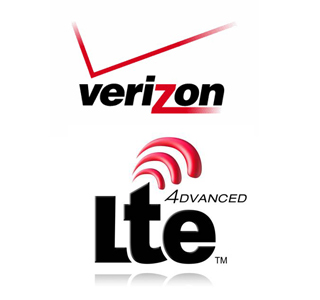 Looks like Verizon is going to deliver that 4G network it’s been talking about for the past year. Today the company announced that this Sunday, it will begin the launch of the first 4G LTE network. Just to give you an idea of its capabilities, Verizon claims the new mobile broadband will offer speeds up to 10 times faster than its 3G network currently provides.
Looks like Verizon is going to deliver that 4G network it’s been talking about for the past year. Today the company announced that this Sunday, it will begin the launch of the first 4G LTE network. Just to give you an idea of its capabilities, Verizon claims the new mobile broadband will offer speeds up to 10 times faster than its 3G network currently provides.
Before going any further, let’s get one thing out of the way: This isn’t technically 4G. According to the International Telecommunications Union, the service doesn’t meet the requirements. Verizon is aware of this, but says it doesn’t matter. “Whether we call it 4G or something else is really not that relevant. It is a quantum generational step up from what our customers experience today,” Verizon CTO Tony Melone said today in a press conference with reporters. And with download speeds of 5 to 12 mbps and upload speeds of 2 to 5 mbps, he wasn’t kidding. (Neither of the other providers advertising “4G” service, T-Mobile with HSPA+ and Sprint/Clear with WiMax, meet the ITU’s strict 4G stipulations, either.)
It feels like 3G was just barely introduced and now providers are scrambling to get on the 4G train. When Verizon initially announced its plans to carry 4G by year’s end, AT&T scoffed, saying the technology wouldn’t be competent until 2012. While the 4G network’s nationwide coverage will roll out over the next three years, as of Sunday it will be available in 38 markets and 60 airports. Verizon also says smartphones are sure to follow in the next year (rumor has it handsets with the service will be introduced at CES this January).
Verizon will have two data plans to choose from. For $50 a month, customers can get 5GB and for $80, 10GB. Exceed your monthly limit, and you’ll be billed $10 per extra gigabyte. A pretty reasonable price, considering Verizon’s 3G coverage is $60 a month for 5GB. And for anyone concerned about the whole mess the carrier was in for massively overcharging millions of customers, Verizon is quick to assure users it will be sending warnings when you’re reaching your data limit. And these prices are extremely competitive with 4G rivals Sprint and T-Mobile.
For the time being, Verizon is marketing USB cards that give its laptop subscribers 4G LTE access. No 4G available? No problem – the cards will also be able to use 3G. One will run you $49 (with a $50 rebate) and a two-year contract.
Apple has reportedly been interested in Verizon’s 4G ambitions, and this development could be the catalyst for iOS devices to break their current AT&T exclusivity. But recently, Verizon CEO Ivan Seidenberg even commented on the iPhone rumors, saying it might be little more than wishful thinking that Apple would be making its way to Verizon Wireless. Two weeks ago, Seidenberg also seemed to be indulging that wishful thinking, telling The Wall Street Journal, “If the iPhone comes to us, it’s because Apple thinks it’s time. Our interests are beginning to come together more but they have to take steps to align their technology with ours.”
Verizon hopes to complete its 4G expansion by 2013. See below for a complete list of cities the service will be available to this Sunday.
- Akron, Ohio
- Athens, Georgia
- Atlanta, Georgia
- Baltimore, Maryland
- Boston, Massachusetts
- Charlotte, North Carolina
- Chicago, Illinois
- Cincinnati, Ohio
- Cleveland, Ohio
- Columbus, Ohio
- Dallas-Fort Worth Metroplex, Dallas, Texas
- Denver, Colorado
- Fort Lauderdale, Florida
- Houston, Texas
- Jacksonville, Florida
- Las Vegas, Nevada
- Los Angeles, California
- Miami, Florida
- Minneapolis/Saint Paul, Minnesota
- Nashville, Tennessee
- New Orleans, Louisiana
- New York, New York
- Oakland, California
- Oklahoma City, Oklahoma
- Orlando, Florida
- Philadelphia, Pennsylvania
- Phoenix, Arizona
- Pittsburgh, Pennsylvania
- Rochester, New York
- San Antonio, Texas
- San Diego, California
- San Francisco, California
- San Jose, California
- Seattle/Tacoma, Washington
- St. Louis, Missouri
- Tampa, Florida
- Washington, D.C.
- West Lafayette, Indiana
- West Palm Beach, Florida


